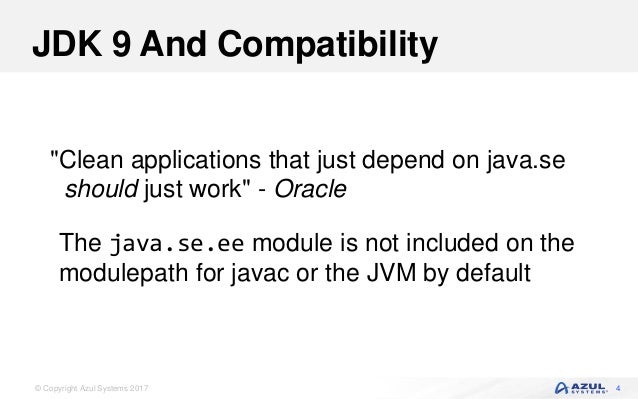Java Jdk 9 For Mac Won't Open

Java 9 makes substantial changes as to how the classpath is handled in order to add modularity to Java. For most applications, this is invisible, but it creates issues for Eclipse's own modularity. Oxygen.1a is the first release of Eclipse that is ready to run under Java 9. If you still have an older Java runtime available. The information on this page pertains to Oracle Java starting with Java 7. Every time you launch a Java applet, a Java Web Start application or the Java.
Java for macOS 2017-001 installs the legacy Java 6 runtime for macOS 10.13 High Sierra, macOS 10.12 Sierra, macOS 10.11 El Capitan, macOS 10.10 Yosemite, macOS 10.9 Mavericks, macOS 10.8 Mountain Lion, and macOS 10.7 Lion. This package is exclusively intended for support of legacy software and installs the same deprecated version of Java 6 included in the 2015-001, 2014-001, and 2013-005 releases. Quit any Java applications before installing this update. See for more details about this update. Cable matters usb to rj45 drivers for mac pro.
See for information about the security content of this update. Keep your software up to date. If you need Java, download the latest version of Java for OS X directly from Oracle.
Senior Member If you've 'installed' Eclipse but are having trouble getting it to run, the most likely cause is that you have not correctly specified the JVM for it to run under. Doing so is easy, just read Exit Code 13 64-bit Eclipse requires a 64-bit JVM, and 32-bit Eclipse requires 32-bit JVM--you can not mix-and-match between 32-bit and 64-bit. Mixing 32-bit and 64-bit versions is the most frequent cause of an Error 13, so make sure the version of Eclipse you installed matches the JVM/JDK that you're using to run it (especially if you are using eclipse.ini to specify the exact JVM used to run Eclipse, described ). If you are on a 64-bit operating system, the Eclipse Installer will be looking for a 64-bit Java Runtime.

As a test, open a command line window and run the intended java binary with the -d32 switch to test if it supports 32-bit, or -d64 to test for 64-bit support. It's often simplest to download a version of Eclipse that will work with whatever Java you already have installed.
To check if you have a 32-bit Java Runtime. Java -d64 -version Java 9, and later, with Eclipse versions prior to Oxygen.1a (Eclipse Platform 4.7.1a) Java 9 makes substantial changes as to how the classpath is handled in order to add modularity to Java. For most applications, this is invisible, but it creates issues for Eclipse's own modularity. Oxygen.1a is the first release of Eclipse that is ready to run under Java 9. If you still have an older Java runtime available, check the reference documentation on using the -vm parameter to launch Eclipse and then update to a compatible version. If you must continue to use an older release, check the Wiki page at for instructions on adding the right startup parameters to your eclipse.ini file, script, or shortcut.